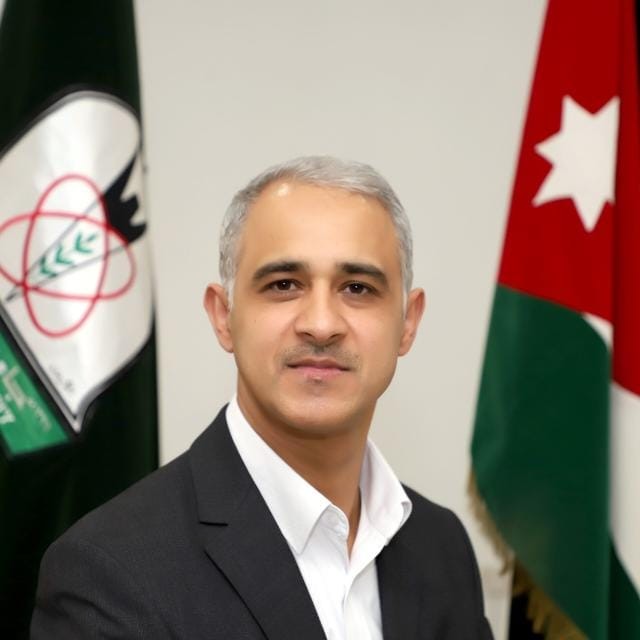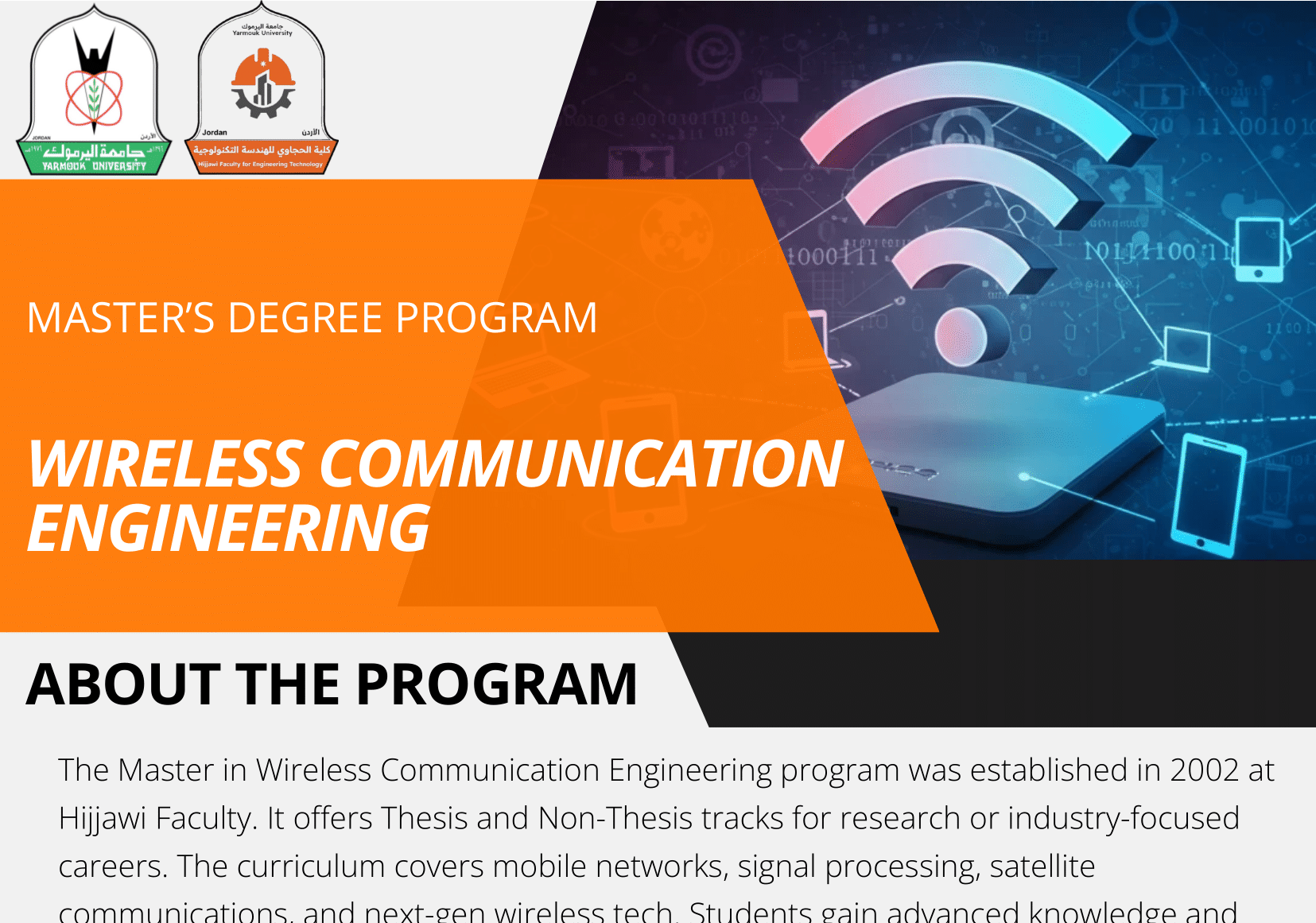Program Department and Chair
For inquiries or further information, please contact:
Email: communications.dept@yu.edu.jo
Phone: +962 2 721 1111 ext. 4539
Dr. Hasan Aldiabat
Chair, Communication Engineering Department
Associate Professor, Communication Engineering
hasan.aldiabat@yu.edu.jo
+962 2 721 1111 ext. 4539
About the Program
The Master in Wireless Communication Engineering degree program at the Hijjawi Faculty for Engineering Technology, Yarmouk University, was established in 2002. It is designed to provide students with advanced knowledge and practical skills in wireless communication technologies, preparing them for impactful careers in academia, research, and the telecommunications industry.
The program offers two study tracks to suit different career paths:
-
Thesis Track: Focuses on academic research and is ideal for students pursuing a Ph.D. or a research-oriented career.
-
Non-Thesis Track: Involves additional coursework and is tailored for professionals seeking advanced technical expertise for industry applications.
The curriculum emphasizes both theoretical foundations and practical applications in areas such as mobile networks, signal processing, satellite communications, and next-generation wireless technologies.
The program plays a vital role in advancing knowledge, fostering innovation, and preparing professionals who contribute meaningfully to the fast-paced world of telecommunications—making it an asset for students, the university, and the broader community.
Deliver in-depth theoretical and practical understanding of modern wireless communication systems and technologies.
Develop students' ability to conduct scientific research and apply advanced tools and methodologies in real-world scenarios.
Strengthen ties with the telecommunications industry through training, joint projects, and knowledge exchange.
Equip graduates with the expertise needed to pursue careers in academia, research institutions, and high-tech industry sectors.
Encourage creative thinking and the development of innovative solutions to engineering challenges in wireless communications.
Instill a strong sense of professional integrity, responsibility, and adherence to ethical practices in engineering and research.
Study Plan
The Master in Wireless Communication Engineering degree program consists of 33 credit hours and is typically completed over a period of two years. It is designed to offer a well-rounded education that combines advanced theoretical knowledge with practical skills relevant to the evolving field of wireless communications.
The curriculum includes a set of core courses that establish a strong foundation in the field. These mandatory courses cover essential topics such as Advanced Digital Communications, Mobile Communication Systems, Random Processes, Antennas and Wave Propagation, Advanced Wireless Networks, and Information Theory and Coding.
In addition to the core courses, students have the opportunity to choose from a range of elective courses tailored to their specific interests and career objectives. These may include Microwave Engineering, Digital Signal Processing, Engineering Mathematics, Detection and Estimation Theory, and Special Topics in Wireless Communications. This flexibility allows students to deepen their expertise in areas most relevant to their future paths.
The program offers two tracks:
- Thesis Track: Students are required to conduct original research and defend their findings in a formal thesis defense. This path is particularly suited for those planning to pursue doctoral studies or research-intensive careers.
- Non-Thesis Track: The program includes either a comprehensive examination or a graduation project. The comprehensive exam ensures students have a broad and integrated understanding of the field, while the project provides a practical opportunity to apply their knowledge to a real-world problem.
Tuition Fees
- For Jordanian Students
- For International Students
Career Opportunities
Graduates of the Master in Wireless Communication Engineering degree program can pursue a wide range of job roles across various sectors, including:
-
Network Engineer
-
Radio Frequency (RF) Engineer
-
Systems Engineer
Awesome Engineering Technology Program
Learn more about the Master in Wireless Communication Engineering degree program by exploring the materials provided here, and discover how it equips you with advanced knowledge and research skills to thrive in the evolving world of wireless technologies.



